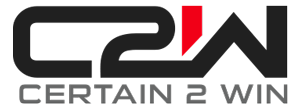Perhaps nothing else has the potential to insure and improve the effectiveness of a commercial venture than creating and maintaining a culture of mutual trust. With it the wheels of success can become greasy smooth, but without it, well, I bet you’ve already experienced just how toxic that environment can be. “Mutual trust is the internal harmony that converts a mob into a team”, so says Col. John Boyd acolyte Chet Richards. And unless one is constantly vigilant, “trust” can become just another company platitude, a proverbial tinkling cymbal and sounding brass.
Mutual trust underlies all the other components of a successful business culture, and everyone seems to recognize this and give it lip service. However, actually creating it and maintaining it can be a different story. Why is it essential and why does it work? For one thing, it allows teams to work together with implied communication and without having to write down every jot and tittle, every thought, and command. Effective communication becomes streamlined with team members knowing what is meant and expected by just an expression or gesture. Having worked together long enough, people can just “know and act” without getting bogged down in minutia. One sign of a lack of trust in an organization is the need to document everything, a process made necessary by the perceived need to protect oneself.
Another benefit of mutual trust is that it not only promotes harmony but promotes individual initiative. Deming’s command of “Drive out fear!” can be best accomplished by creating a climate of trust where individuals can act and act quickly without having to constantly seek approval and remain dependent on higher levels of management for every decision they face. As managers, one of our most important goals is to embolden others to think creatively and act independently. In a culture of mutual trust those essential skills can thrive. And I think we all recognize the competitive benefits of a team that acts boldly and quickly.
Another important builder of trust is the maintenance of confidentiality. One important lesson I learned during a decade of serving as a mediator is just how to insure confidentiality. It’s simple but effective: make it clear to others exactly what you want kept confidential. What’s clear to you may not be clear to them, so make it crystal clear by saying exactly what you want to be kept confidential. Then there is no question, and there can be no excuses. Doing so can go a long way toward creating and maintaining mutual trust.
Finally, the insurance policy that supports mutual trust within an organization is ethics. Rather than going through the motions by having everyone watch a video and listen to a presentation on ethics so management can wash their hands in front of the crowd and proclaim “We delivered ethics training”, operating ethically can be a game-winning
competitive force. Sure, high ethical standards can be their own reward, but a company that walks its ethical talk is a company that fosters trust among its team members. Are you interested in attracting the best and the brightest and retaining the crème de la crème of personnel? Invite them to participate in a culture of vision, trust, and individual initiative, and when the word gets out you’ll have to break out the velvet barriers to organize the crowd of applicants stretching around the block.
In the next edition I’ll discuss how to get mutual trust and the factors within an organization that can dose it like a bucket of creek water on a campfire.
Originally published in Beaumont Business Journal, Heat And Humanity Column


